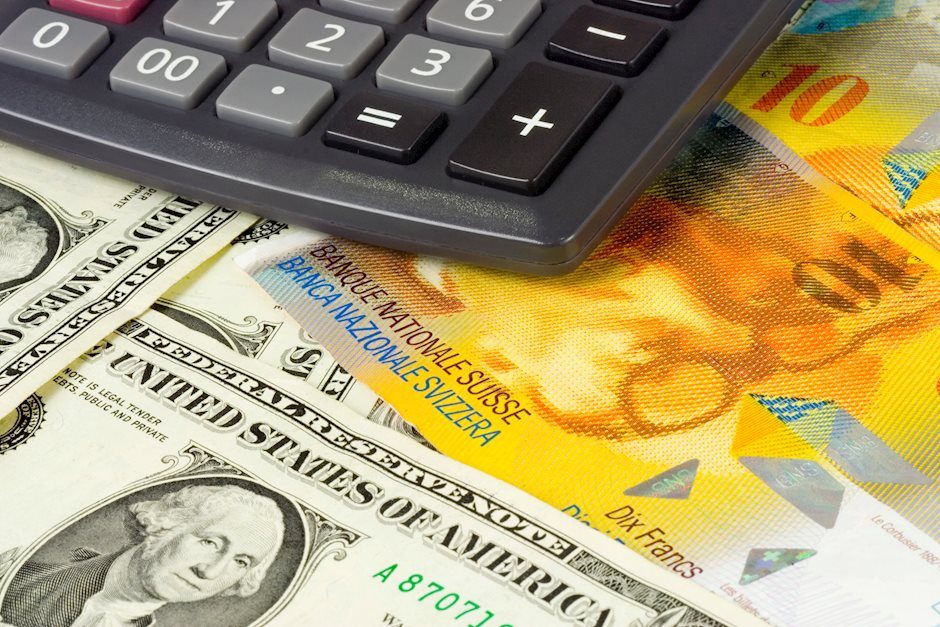USD/CHF aims to revisit 0.8950 as SNB to cut rates further
- USD/CHF strives to reclaim an almost five-month high of 0.8960 amid weakness in the Swiss Franc (CHF).
- The SNB unexpectedly cuts its interest rates by 50 bps to 0.5% on Thursday.
- Investors expect the Fed to reduce its key borrowing rates by 25 bps on Wednesday.

The USD/CHF pair aims to revisit a five-month high of 0.8960 in Friday’s North American session. The Swiss Franc pair ticks higher as the outlook of the Swiss currency has weakened across the board after the Swiss National Bank (SNB) surprisingly reduced its key borrowing rates by 50 basis points (bps) to 0.5% on Thursday.
Market participants anticipated the SNB cutting interest rates by 25 bps as the central bank remained worried about the risks of inflation undershooting the bank’s target and growing concerns over the global markets due to potential tariffs by United States (US) President-elect Donald Trump.
After a larger-than-usual interest rate cut decision, SNB Chairman Martin Schlegel commented, "With our easing of monetary policy today we are countering the lower inflationary pressure." On the interest rate outlook, Schlegel said, "We will continue to monitor the situation closely, and will adjust our monetary policy if necessary to ensure inflation remains within the range consistent with price stability over the medium term."
Meanwhile, the US Dollar (USD) surrenders its intraday gains and turns negative as the Federal Reserve (Fed) is widely anticipated to cut its key borrowing rates by 25 bps to 4.25%-4.50% in the policy meeting on Wednesday. The US Dollar Index (DXY), which tracks the Greenback’s value against six major currencies, falls back to near 106.75 after facing selling pressure above 107.00.
Though the Fed is certain to cut interest rates next week, it is expected to pause the policy-easing cycle in January as progress in disinflation appears to have stalled. According to the CME FedWatch tool, there is a 77% chance that the Fed will leave interest rates unchanged next month.
Swiss Franc FAQs
The Swiss Franc (CHF) is Switzerland’s official currency. It is among the top ten most traded currencies globally, reaching volumes that well exceed the size of the Swiss economy. Its value is determined by the broad market sentiment, the country’s economic health or action taken by the Swiss National Bank (SNB), among other factors. Between 2011 and 2015, the Swiss Franc was pegged to the Euro (EUR). The peg was abruptly removed, resulting in a more than 20% increase in the Franc’s value, causing a turmoil in markets. Even though the peg isn’t in force anymore, CHF fortunes tend to be highly correlated with the Euro ones due to the high dependency of the Swiss economy on the neighboring Eurozone.
The Swiss Franc (CHF) is considered a safe-haven asset, or a currency that investors tend to buy in times of market stress. This is due to the perceived status of Switzerland in the world: a stable economy, a strong export sector, big central bank reserves or a longstanding political stance towards neutrality in global conflicts make the country’s currency a good choice for investors fleeing from risks. Turbulent times are likely to strengthen CHF value against other currencies that are seen as more risky to invest in.
The Swiss National Bank (SNB) meets four times a year – once every quarter, less than other major central banks – to decide on monetary policy. The bank aims for an annual inflation rate of less than 2%. When inflation is above target or forecasted to be above target in the foreseeable future, the bank will attempt to tame price growth by raising its policy rate. Higher interest rates are generally positive for the Swiss Franc (CHF) as they lead to higher yields, making the country a more attractive place for investors. On the contrary, lower interest rates tend to weaken CHF.
Macroeconomic data releases in Switzerland are key to assessing the state of the economy and can impact the Swiss Franc’s (CHF) valuation. The Swiss economy is broadly stable, but any sudden change in economic growth, inflation, current account or the central bank’s currency reserves have the potential to trigger moves in CHF. Generally, high economic growth, low unemployment and high confidence are good for CHF. Conversely, if economic data points to weakening momentum, CHF is likely to depreciate.
As a small and open economy, Switzerland is heavily dependent on the health of the neighboring Eurozone economies. The broader European Union is Switzerland’s main economic partner and a key political ally, so macroeconomic and monetary policy stability in the Eurozone is essential for Switzerland and, thus, for the Swiss Franc (CHF). With such dependency, some models suggest that the correlation between the fortunes of the Euro (EUR) and the CHF is more than 90%, or close to perfect.
Author

Sagar Dua
FXStreet
Sagar Dua is associated with the financial markets from his college days. Along with pursuing post-graduation in Commerce in 2014, he started his markets training with chart analysis.

















